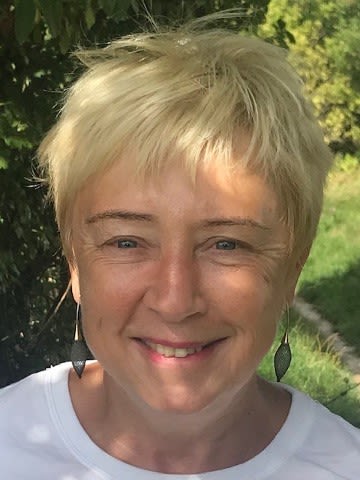Sue Wilkinson, 1977
"I am really glad [...] to see the actions being taken to ensure that the student body reflects the diversity of today’s society"

Sue Wilkinson read History at Clare. She retired in 2019 from her role as CEO of national charity The Reading Agency. Prior to that she had been Director: UK Academic and Government Alliances at Elsevier and Director of Policy at the Museums, Libraries and Archives Council. Sue was awarded an MBE in 2014 for services to education and museums and an OBE in 2020 for services to literature and libraries.
Sue's Story
I arrived at Clare in 1977 from a state school in Barnsley in South Yorkshire with little history of Oxbridge applications. 45 years on what is its legacy? Enduring friendships, a lifelong love of history and a set of skills which I have used every day of my working life.
Back then Clare was leading the way in opening up Cambridge to women and to people from state schools. I am really glad on opening Clare News, to see the actions being taken to ensure that the student body reflects the diversity of today’s society.
I chose Clare partly because it was mixed, small and central but also because it was Professor Geoffrey Elton’s college. His seminal work on the Tudors started my love of history. Elton got me into Cambridge, but it was Roger Schofield who taught me how to cope with it. Schofield interviewed me with Charles Parkin. Once Charles had got me to relax a bit, Roger went in for that forensic Cambridge questioning designed to see how you deal with your arguments being challenged. Schofield remained a mentor throughout my time at Clare. He taught me to have the courage to say “hang on a minute I don’t get that”; to do my research (“remember Machiavelli”) and to find out what the people who haven’t joined in the discussion think about an issue before making a final decision.
It was my special subject however which, as well as fundamentally changing my understanding of how history is recorded, interpreted, and disseminated, shaped my future career. l studied the early history of Uganda and, in the process, discovered the Roscoe collection at the Archaeology and Anthropology Museum. The museum was an early champion of the repatriation of cultural artefacts to Uganda and I have followed with interest the work it is now doing with the Uganda Museum. As a volunteer I helped to catalogue the collections under the watchful eye of Deborah Swallow; suddenly I was handling objects which had been core to the society I studied. It made me want to work in museums and support the drive, just starting in the 1980s, to open up collections and engage local communities to ensure that their knowledge base and experiences are valued and used to shape and inform the historical record.
After leaving Cambridge and doing post-graduate courses in museums and in education I have spent my career in the cultural sector working with a wide range of national and international partners. Together we developed policy; created a framework to measure the impact of educational and cultural visits; delivered national programmes and managed big investment funds - something which seems almost impossible to imagine now.
So, if I could confront my 18-year-old self what would I say? I would certainly tell her to be more self-confident, to join the Union, go to more parties, see more plays and visit the Fitzwilliam and Kettles Yard every week instead of once a year. I might even suggest trying rowing - though I don’t think she would take any notice of that recommendation. I’d say that she was absolutely right to put such a high value on friendship, that the friends she was making in those 3 years, would still be her friends 45 years later. I’d also tell her to pluck up the courage to speak to Geoffrey Elton when I saw him going into his room on N staircase and tell him just how influential his books had been.
